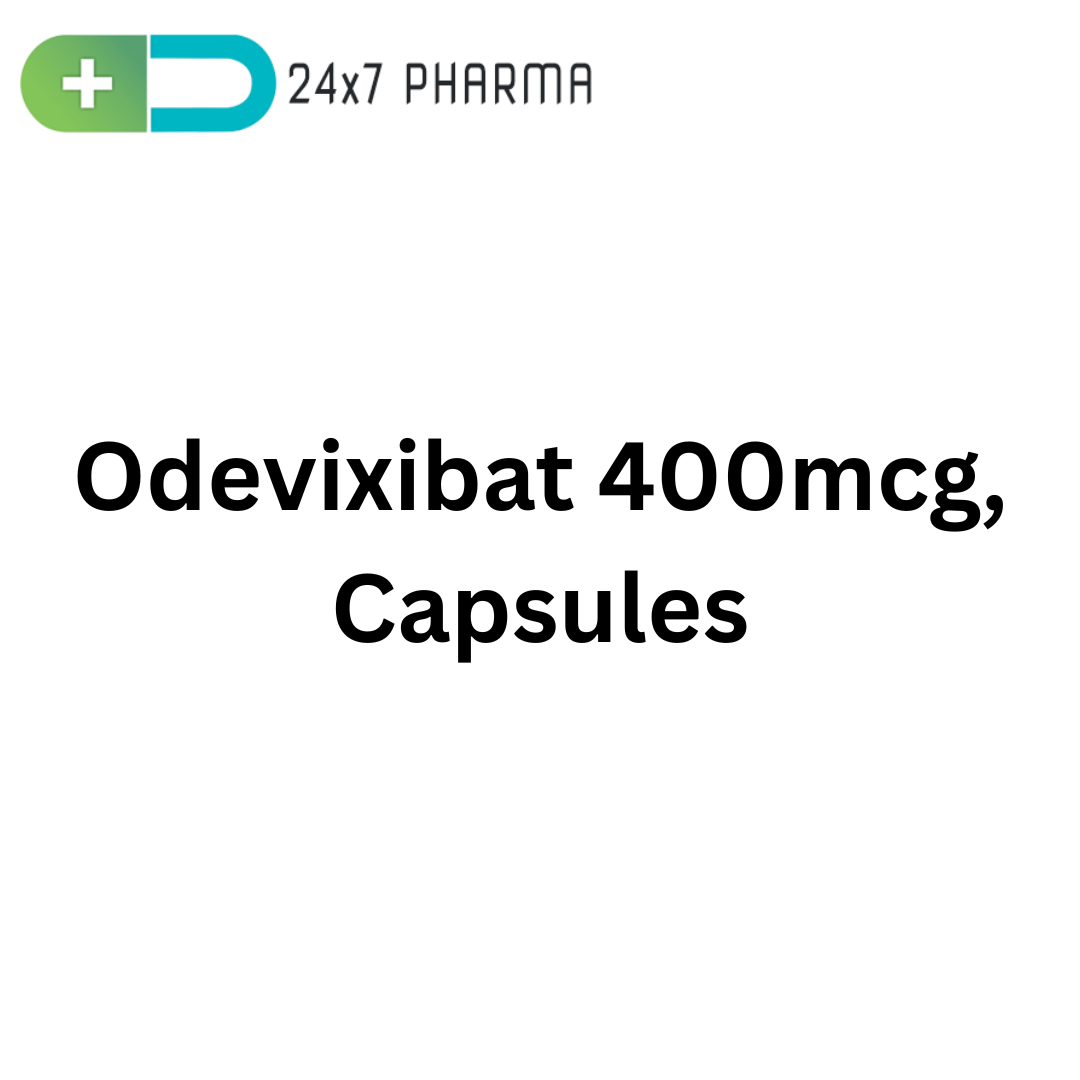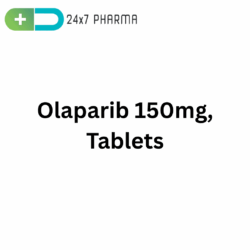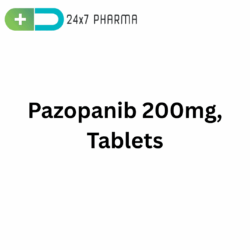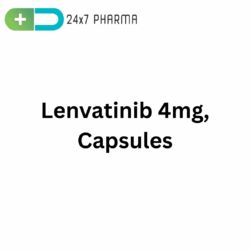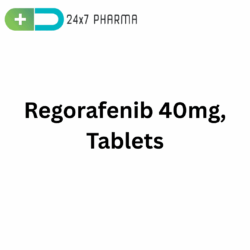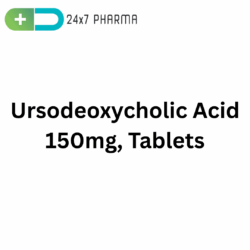LuciOdevi 400mcg, Odevixibat Capsules
LuciOdevi 400mcg contains Odevixibat, a medication primarily prescribed for certain rare pediatric liver diseases. It is a bile acid transport inhibitor that plays a key role in managing disorders where bile acid accumulation causes liver and systemic damage. LuciOdevi offers a groundbreaking therapeutic approach, especially for individuals suffering from progressive familial intrahepatic cholestasis (PFIC).
What Is LuciOdevi 400mcg?
LuciOdevi 400mcg is a pharmaceutical formulation of Odevixibat, an inhibitor of the ileal bile acid transporter (IBAT). It is a prescription medicine used in the treatment of PFIC, a rare inherited liver condition where bile cannot properly flow from the liver to the small intestine. The build-up of bile causes liver damage and severe itching (pruritus), among other complications. LuciOdevi reduces bile acid reabsorption, thus easing symptoms and improving liver health.
How It Works / Mechanism of Action
Odevixibat works by blocking the apical sodium-dependent bile acid transporter (ASBT), often referred to as the ileal bile acid transporter (IBAT). This transporter, located in the terminal ileum of the small intestine, normally reabsorbs bile acids back into the liver through the enterohepatic circulation
By blocking IBAT:
- Less bile acid is reabsorbed
- More bile acid is excreted in feces
- There is less buildup of bile acids in the liver.
- Symptoms like itching and liver inflammation decrease
- This mechanism is particularly beneficial in PFIC, where bile acid transport and excretion are impaired.
How to Use / Indications
For the treatment of PFIC in children three months of age and up, LuciOdevi is recommended. Additionally, it is being researched for additional cholestatic liver conditions such as:
- Alagille syndrome (ALGS)
- Bile acid synthesis disorders
- Primary sclerosing cholangitis (PSC)
- Intrahepatic cholestasis of pregnancy (ICP)
- However, the approved indication remains PFIC at this time. Always use LuciOdevi under strict medical supervision.
How to Take / Dosage
Standard dosage of LuciOdevi 400mcg:
- Body weight and clinical response determine the dosage.
- It is taken by mouth once a day, ideally at the same time every day.
- Do not chew or crumble; swallow whole with water.
Recommended Starting Dose:
- < 19.5 kg body weight: 40 mcg/kg once daily
- ≥ 19.5 kg body weight: 1,200 mcg once daily (may be given as 3 tablets of 400 mcg)
- Dose adjustments may be made based on tolerance and effectiveness.
Other Dosage Forms & Strengths
While LuciOdevi 400mcg is the common strength, other strengths may be available, including:
- 200 mcg tablets (for flexible pediatric dosing)
- 600 mcg and 1,200 mcg options (in development or for titration)
- These varying strengths allow for weight-based individualized dosing in pediatric populations.
Side Effects
Common side effects:
- Diarrhea
- Abdominal pain
- Elevated liver enzymes (ALT, AST)
- Fatigue
- Vomiting
Less common but serious side effects:
- Liver injury
- Vitamin deficiencies (especially fat-soluble vitamins A, D, E, and K)
- Growth delays (in pediatric populations)
- Regular monitoring of liver function tests, nutritional status, and growth parameters is crucial during treatment.
Storage
- Store at room temperature (15°C to 30°C / 59°F to 86°F)
- Keep away from moisture and direct light
- Keep out of reach of children
- Do not use expired medicine; check the packaging regularly
Benefits
LuciOdevi provides a novel, non-surgical approach to managing PFIC, significantly improving patient quality of life.
Key benefits include:
- Reduction in pruritus (severe itching)
- Improved liver enzyme levels
- Delay or avoidance of liver transplantation
- Better bile acid regulation
- Improved sleep and behavior in pediatric patients
- In clinical trials, many children on LuciOdevi showed marked improvement in itching and liver function parameters within weeks.
Prescription
LuciOdevi 400mcg is a prescription-only medication and should only be taken under the supervision of a qualified hepatologist or pediatric gastroenterologist. It requires:
- Baseline liver function testing
- Weight-based dosing calculations
- Periodic monitoring
- Long-term follow-up care
- It is often prescribe through a specialty pharmacy due to its rare disease indication and need for careful patient selection.
Interaction
Drug Interactions:
- Bile acid sequestrants (e.g., cholestyramine) may reduce the effectiveness of Odevixibat.
- Fat-soluble vitamin supplements may be require if nutrient absorption is compromise.
- Warfarin: Monitor INR as bile acid changes may affect anticoagulant levels.
- Cytochrome P450 (CYP) interactions are minimal, making it relatively safe in terms of metabolic interactions.
Dietary Interaction:
- No significant food restrictions, but taking with a small meal may enhance compliance and reduce GI upset.
FAQs
Is LuciOdevi safe for infants?
It is approve for use in children 3 months and older, with careful monitoring.
Can LuciOdevi cure PFIC?
It manages symptoms and slows disease progression, but it is not a cure. Lifelong management may be necessary.
How long does it take to see results?
Many patients experience reduced itching and improved liver enzymes within weeks to months.
Conclusion
LuciOdevi 400mcg (Odevixibat) represents a significant advancement in the treatment of progressive familial intrahepatic cholestasis (PFIC) and potentially other cholestatic liver disorders. With its ability to reduce bile acid levels, alleviate severe itching, and delay liver damage, it offers hope for children facing debilitating liver conditions. Regular monitoring, appropriate dosing, and clinical oversight are essential to ensure safe and effective therapy.
While not a cure, LuciOdevi provides vital symptomatic relief, improves liver health, and enhances the quality of life for affected children and their families. Its targeted mechanism, good safety profile, and promising clinical outcomes make it a cornerstone therapy in modern hepatology for rare pediatric liver diseases.

